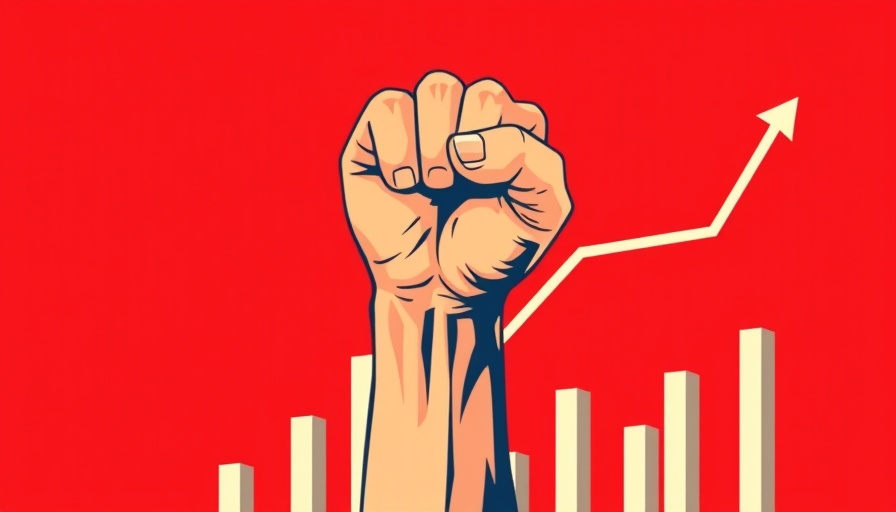
Examining Trump’s ‘Transition Period’: What It Really Means
In a bid to recalibrate public sentiment amidst growing recession fears, President Donald Trump has labeled the current economic climate a "transition period." During recent interviews and social media posts, he asserted that the country is set to thrive despite signs that the economy is stalling.
General Economic Trends: The Bigger Picture
Trump’s description of the economy as undergoing a transformation coincides with mixed signals from economic indicators. Job growth has indeed seen a subtle slowdown, prompting concerns among analysts and the public about a potential recession. The recent GDP data reflecting the first quarterly decline in three years further fuels fears that the U.S. economy is faltering. Yet, amid these warnings, some bright spots exist, including robust consumer spending. Such dichotomies prompt us to question the government's narrative—what does a transitional economy really signify for you?
Public Sentiment: A Shift in Approval Ratings
Trump’s approach seems to fall on deaf ears as indicated by a recent Reuters/Ipsos poll showing a notable decline in public approval—from 42% down to 37%. For many Americans, the word "recession" often brings anxiety, especially considering its immediate impact on jobs and livelihoods. Trump's efforts to cloak recession fears in a cloak of optimism raise questions: is this merely a strategic ploy, or does he genuinely believe the economy will fare well?
The Federal Reserve's Dilemma: Interest Rates at a Crossroads
Trump's insistence on lowering interest rates serves dual purposes. On one hand, lower interest rates could spur borrowing and investment, potentially invigorating the economy. On the other hand, this move could signal a deeper-rooted problem—an economy that requires external aid to flourish. Many experts caution against such shortcuts, believing that raising rates may be necessary to cool inflation, especially as import tariffs contribute to cost increases. Without addressing these underlying issues, the transition Trump envisions may remain an illusion.
Real Human Impact: How Normal Americans Are Feeling
The average American, facing rising costs due to tariffs and uncertain job security, might not share Trump’s optimism. As working-class families navigate the financial maze of rising costs and stagnant wages, the notion of a 'transition' may feel abstract. Data reflects growing fears about financial well-being, challenging the president's initial narrative of seamless economic prowess. What happens when the rhetoric of strength clashes with everyday financial realities?
Voices from the Market: Diverse Perspectives on Economic Policy
Economists are divided on the implications of Trump’s policies. While some hail the potential for renewed growth through consumer spending and contrasting investment trends, others express grave concerns about the longer-term effects of tariffs and reduced business confidence. This polarized view showcases a fundamental economic dilemma: do we take fiscal risks in the name of short-term growth, or do we advocate for stability and sustainability?
What Could This Mean Going Forward?
Looking ahead, several scenarios could unfold depending on both governmental actions and market reactions. If predicted trends of inflation materialize, Trump’s desire for a thriving economy amid recession fears could become increasingly tenuous. How policymakers respond in the coming months will be crucial. Will they heed warnings from financial experts, or will they press ahead with unconventional strategies?
Conclusion: Take Action or Brace for Change?
As citizens, understanding the realities behind political rhetoric is essential. Whether it’s advocating for responsible economic policies or questioning prevailing trends, engaging in dialogue and community discourse is crucial. Consider scrutinizing not just what leaders say but what these economic strategies mean for you and your financial future. With the stakes as high as they are, awareness and proactive discussions are needed to navigate this transition period.
 Add Row
Add Row  Add
Add 




 Add Row
Add Row  Add
Add 

Write A Comment